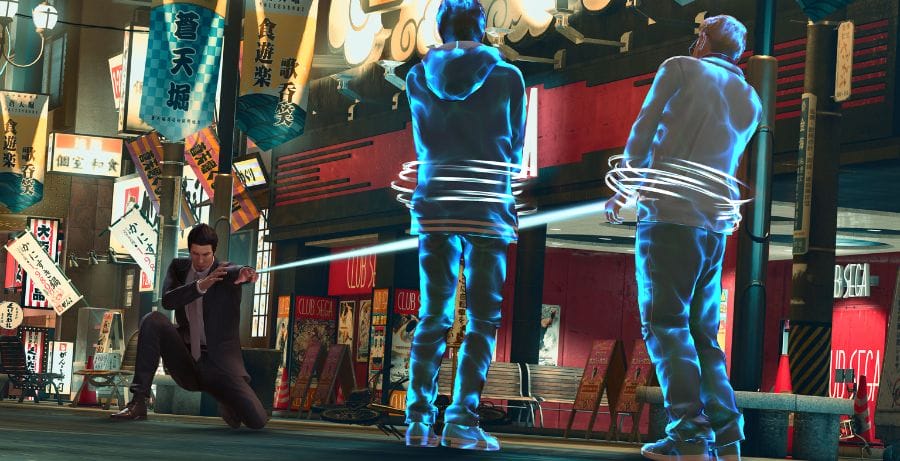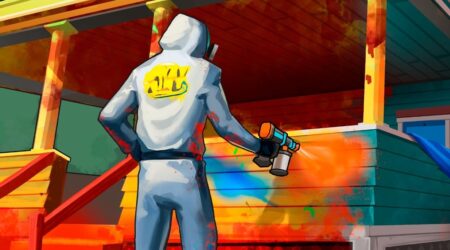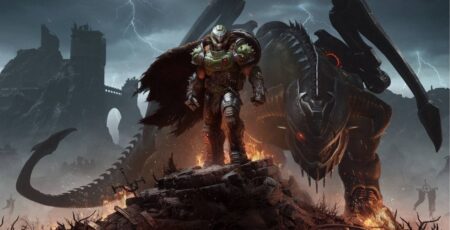Like a Dragon Gaiden: The Man Who Erased His Name is the newest entry in the decades-old Like a Dragon (formerly Yakuza) series. The title, developed by Ryu Ga Gotoku Studio and published by Sega, explores the life of the former series protagonist Kazuma Kiryu after he faked his death and, in doing so, provides a smaller but nonetheless thrilling adventure that succeeds in setting the stage for the future of the series.
After a brief tenure as a dead man, Kazuma Kiryu is needed once again to dismantle nefarious plots that can affect all of Japan. The moments leading to his alleged demise are recapped early on, and though we never get further context, we don’t really need it. Kiryu, now working under the foolproof alias Joryu, is dragged back into the spotlight for a smaller quest that largely stands on its own with the exception of its connection to Yakuza: Like a Dragon, the seventh game in the franchise. For longtime fans who’ve played most or all of the series’ entries, Like a Dragon Gaiden: The Man Who Erased His Name bridges the narrative between Yakuza 6: The Song of Life and Yakuza: Like a Dragon, explaining what Kiryu was doing behind the scenes of the latter game. Newcomers may be a little confused, but with a supporting cast mostly made up of new faces, and a story that focuses on the future, Like a Dragon Gaiden can be enjoyed without playing previous entries.
It’s a challenge then, to introduce a cadre of new allies for Kiryu and expect players to grow attached in such a short time. This, however, is one of Ryu Ga Gotoku Studio’s strengths. Even when meeting a new character for a brief side quest, they’re often written so well that they can feel like an old fan favorite. Of course, this extends to Kiryu’s new friends like his Daidoji handler Hanawa, and his Sotenbori informant, Akame, who will hopefully return in future titles.
Like a Dragon Gaiden fits almost seamlessly into the existing narrative, save for a few last-second costume changes to match pre-existing scenes. It feels like a natural extension of the two most recent games (Yakuza 6: The Song of Life and Yakuza: Like a Dragon) and allows for a more self-aware send-off for Kiryu in what may be his final brawling adventure (as the series switches to the turn-based RPG genre).

It makes sense then that a key aspect of the narrative and gameplay is an arena. Set up on a massive ship known as the Castle, Kiryu can enter the arena, alone or with a team of devotees you can recruit, to earn riches and reputation. Ranking up allows you to access more illustrious sections of the ship, such as the VIP Lounge, where stronger recruitable fighters or side quests await. These challenges provide a fun break from the story, allowing players to hone their skills and earn money to upgrade their stats and earn new abilities.
Whether it’s inside or outside of the arena, Like a Dragon Gaiden has no shortage of tough fighters, throwing more enemies at a time at Kiryu than ever before. As an agent of the Daidoji (the organization that helped him fake his death), Kiryu has access to tools to assist in battle. These come in the form of attack drones, exploding cigarettes, rocket boots, and a highly durable string that allows him to toss his enemies around. While the rocket boots and string weapon were invaluable for repositioning or gaining some breathing room, the cigarettes and drones felt much more difficult to use effectively in battle.
If all else fails, players can swap to Kiryu’s Yakuza Style, reverting to his move set from the rest of the series and delivering brutal punches and finishers to his enemies. Each style has its strengths though, so having the option to swap on the fly is appreciated. Despite the fancy gadgets, Like a Dragon Gaiden remains a brawler at its heart, albeit one that has been tuned for decades, providing a simple but rewarding combat system.
This is most evident when fighting bosses. These over-the-top engagements are less frequent than in other titles, but they’re still as bombastic as ever. Players can blindly punch and kick their way through most enemies, but in boss fights they’ll have to block, dodge, and counterattack to survive. These encounters are made all the more thrilling by the scenes interspersed throughout the fight, providing intensely choreographed moments that could have been pulled from a martial arts movie, while simultaneously giving players a moment to breathe. Additionally, while the music throughout the game is consistently enjoyable, boss fights are accentuated with especially exciting tracks, making the prospect of dying and fighting them again a little less punishing.

When Kiryu isn’t fighting his way through the arena or bosses, he’ll be spending most of his time in the oft-visited franchise locale Sotenbori. This neighborhood is jam-packed full of restaurants, mini-games, hidden treasures, and side quests, and partaking in all of them is another key facet of Like a Dragon Gaiden. Early on, Kiryu will meet with an information broker who needs his help to improve their reputation in the city.
From then on, just about every side activity in the city will contribute to this network’s efficacy, benefitting Kiryu in the long run. From smaller errands for civilians in need of tissue paper or a meal, to larger side quests that require some more legwork and fighting, everyone Kiryu helps is worth the trouble. The side quests themselves are a highlight of the game and the franchise overall, leading to hilarious or touching stories.
Of course, there are various other side activities to participate in, such as Shogi, Golf, and even Karaoke. You can also visit a Sega arcade, playing classic games like Sonic the Fighters or the UFO Catchers (claw machines). Eventually, you can find a Sega Master System on which you can play classic titles like Flicky or Alex Kidd in Miracle World. Longtime fans may gloss over these offerings since they’re present in most other entries, but for a new player, these options are welcome, allowing them to lose hours at the claw machines or insert one more coin to ensure victory in Fighting Vipers 2.
Like a Dragon Gaiden: The Man Who Erased His Name may not be as long as other games in the series, but it still provides a deep sandbox in which to lose yourself for hours, whether it’s in the arena, the arcade, or simply helping out around the neighborhood.
Like a Dragon Gaiden: The Man Who Erased His Name is available now on PlayStation 4, PlayStation 5, Xbox One, Xbox Series X|S, and PC.
Like a Dragon Gaiden: The Man Who Erased His Name
-
Rating - 8.5/108.5/10
TL;DR
Like a Dragon Gaiden: The Man Who Erased His Name may not be as long as other games in the series, but it still provides a deep sandbox in which to lose yourself for hours, whether it’s in the arena, the arcade, or simply helping out around the neighborhood.







